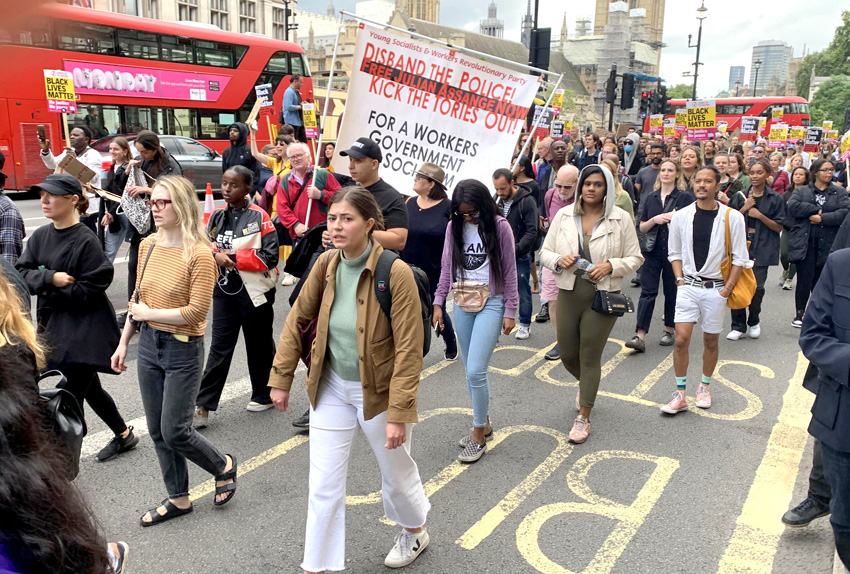POLICE officers guilty of gross misconduct in England and Wales will face automatic sackings, the government has announced.
The change follows high-profile cases of officers committing rape and murder.
The Police Federation, which represents rank and file officers, called the changes ‘a return to kangaroo courts’.
Under the new system, chief constables or their deputies will chair misconduct panels hearing serious allegations against officers.
Until now the panels have been chaired by an independent lawyer.
The Police Regulations, which govern officers’ behaviour, will also be changed to allow police officers who fail re-vetting checks to be dismissed.
Policing minister Chris Philp said the changes would target the ‘small minority of police officers who let down the police force, and therefore let down the public’.
‘They will make sure there is nowhere to hide for officers who don’t deserve to wear the uniform,’ he told BBC Breakfast.
Metropolitan Police Commissioner Sir Mark Rowley has been publicly campaigning for the change, telling MPs in April that independent lawyers are ‘more forgiving’ of bad behaviour than senior police officers.
In a statement issued by the government, Rowley said he was glad ministers had recognised the need for ‘substantial change’.
A review of the Met by Baroness Casey found the number of officers dismissed for gross misconduct started to fall when independent chairs were introduced to run the hearings.
Home Office data on police misconduct shows that in the year ending March 2022, 12 officers out of 267, found guilty of gross misconduct, were not punished with dismissal from the police.
Of the 267 officers, 136 resigned or retired before they could be formally sanctioned.
The Police Federation had lobbied the government not to change the current system, and called the announcement a ‘huge retrograde step’.
Its national chair, Steve Hartshorn, said: ‘A return to kangaroo courts, whereby an officer is already guilty in the eyes of the chief officer before any evidence is heard, and they already know what outcome they want to see, is deeply concerning.’
Tiffany Lynch from the Police Federation criticised the changes, saying it was important to ‘see due process’, telling BBC Radio 4’s Today programme that officers must have the opportunity to defend themselves.
But the chairman of the National Police Chiefs’ Council, Gavin Stephens, told BBC News the new system contained checks and balances to ensure independence.
He alleged: ‘There’s nothing that upsets police officers more than to see their fellow officers transgress, commit crime, and commit awful misconduct offences.
‘That really aggrieves us as it aggrieves our communities, and we want to act firmly and swiftly to ensure that those who don’t belong in policing are not serving.’
Labour said the announcement did not go far enough, and has also called for officers under investigation for rape and domestic violence to be suspended during any inquiries.
Home Secretary Suella Braverman said: ‘For too long our police chiefs have not had the powers they need to root out those who have no place wearing the uniform.
‘The public must have confidence that their officers are the best of the best, like the vast majority of brave men and women wearing the badge, and that’s why those who disgrace the uniform must have no place to hide.’
